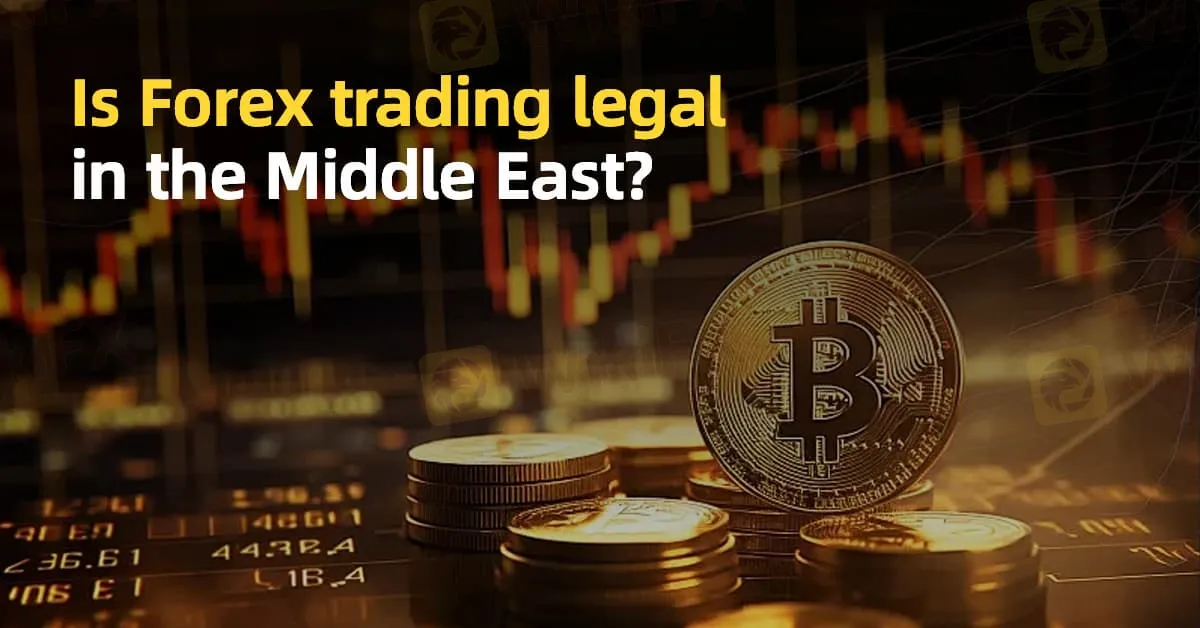简体中文
繁體中文
English
Pусский
日本語
ภาษาไทย
Tiếng Việt
Bahasa Indonesia
Español
हिन्दी
Filippiiniläinen
Français
Deutsch
Português
Türkçe
한국어
العربية
Is Forex trading legal in the Middle East?
Abstract:In recent years, the Middle East has emerged as a dynamic Forex trading hub, fueled by the region's growing economy, technological advancements, and increasing investor sophistication. This article explores the legality of Forex trading in key Middle Eastern countries.

In recent years, the Middle East has emerged as a dynamic Forex trading hub, fueled by the region's growing economy, technological advancements, and increasing investor sophistication. This article explores the legality of Forex trading in key Middle Eastern countries.
Is Forex Trading Legal in Qatar?
In Qatar, the Qatar Stock Exchange (QSE) is a central authority that establishes trading rules and ensures market transparency. Forex trading is legal and regulated. The Forex market and brokers operate under the supervision of the Qatar Financial Centre (QFC) and other relevant authorities. The QFC sets the standards and rules for the registration and operation of brokerage firms in the Forex market.
To operate legally in Qatar, brokers must obtain a license from the QFC and comply with established regulations. This ensures transparency and reliability in the country's financial markets, fostering a secure trading environment for investors.
HFM: Top Forex Broker in Qatar
HFM, a trading name of HF Markets Group, founded in 2010, is a financial broker that provides both individual and institutional clients with online trading services. HFM has been headquartered in Cyprus but serves several global offices in Dubai, South Africa, and offshore entities in St Vincent and the Grenadines, all under respective regulatory authorities.

Is Forex Trading Legal in Saudi Arabia?
Forex trading is legal in Saudi Arabia but is subject to strict regulation. The two main regulatory bodies overseeing this sector are the Capital Market Authority (CMA) and the Central Bank of Saudi Arabia.
The CMA is responsible for monitoring the securities market and investment services, which includes licensing and overseeing brokers and investment firms. It ensures the protection of investor rights and interests while promoting market transparency.
Similarly, the Central Bank of Saudi Arabia plays a crucial role in regulating Forex trading by issuing licenses to brokers and setting standards for their operations. Brokers wishing to operate in Saudi Arabia must obtain licenses from both the CMA and the Central Bank to ensure compliance and protect traders' interests.
Is Forex Trading Legal in the UAE?
In the United Arab Emirates (UAE), Forex trading is legal, provided that traders comply with the regulations set by two main authorities: the Securities and Commodities Authority (SCA) and the Financial Services Regulatory Authority (FSRA) operating from the Abu Dhabi Global Market (ADGM).
The SCA establishes rules, licenses brokerages, and ensures transparency and investor protection in the financial markets. The FSRA, on the other hand, oversees a wide range of financial services, including the stock market and investment services within the ADGM, a prominent international financial center.
AvaTrade: Top Forex Broker in the UAE
Avatrade is an online forex and CFD broker that was established in 2006. The company is headquartered in Dublin, Ireland, and is regulated by several financial authorities around the world, including ASIC, CBI, FSA, FSCA, FSC, CBI, and FFAJ.
As a market maker broker, Avatrade offers a range of tradable assets including forex, CFDs, stocks, indices, commodities, and cryptocurrencies. The broker provides clients with access to multiple trading platforms, including AvaTradeGO, MT4, MT5, WebTrader, AvaOptions, and DupliTrade. Mobile trading is also available.
Avatrade requires a minimum deposit of $100 to open an account, and clients can choose from a variety of payment methods including credit/debit card, bank transfer, e-wallets, and Rapid Transfer.
Customer support is available via live chat, phone, email, and a knowledge base. The broker also provides a range of educational resources for traders, including webinars, e-books, trading videos, and articles.

Conclusion
Forex trading is legal and regulated in key Middle Eastern countries like Qatar, Saudi Arabia, and the UAE. Each country has established regulatory frameworks to ensure transparency, protect investors, and foster a secure trading environment. As the region continues to develop as a financial hub, opportunities for Forex trading are likely to expand, attracting traders from around the world.

Disclaimer:
The views in this article only represent the author's personal views, and do not constitute investment advice on this platform. This platform does not guarantee the accuracy, completeness and timeliness of the information in the article, and will not be liable for any loss caused by the use of or reliance on the information in the article.
Read more

Justice Served: Illegal Investment Scheme Ends in RM28 Million Repayment
The Kuala Lumpur High Court has ruled that a Singaporean businessman, Chan Cheh Shin, must return RM28 million to 122 Malaysian investors after the court determined that his investment operations were conducted illegally.

RM900,000 Scammed: The Hidden Dangers of Online Investment Schemes
A 53-year-old factory manager from Malaysia has fallen victim to an online investment scam, losing over RM900,000 of her savings. This case underscores the growing threat of online scams preying on unsuspecting individuals.

Doo Group Expands Its Operations with CySEC License
Doo Financial, part of Doo Group, receives a CySEC license, allowing FX/CFD services in Europe. This strengthens its global presence and regulatory standards.

Exness: Revolutionizing Trading with Cutting-Edge Platforms
Exness offers traders seamless experiences with its Exness Terminal and Exness Trade app, providing flexibility, advanced tools, and low-cost trading.
WikiFX Broker
Latest News
BSP Shuts Down Uno Forex Over Serious AML Violations
ACY Securities Expands Global Footprint with South Africa Acquisition
Rupee gains against Euro
Tokyo Police Arrest 4 for Unregistered FX Trading Scheme
US Regulators Tighten Oversight on Bank Anti-Money Laundering Efforts
Doo Group Expands Its Operations with CySEC License
RM900,000 Scammed: The Hidden Dangers of Online Investment Schemes
5 Advantages of Choosing a Regulated Broker
Axi Bids AUD 52M to Acquire Low-Cost Broker SelfWealth, Outbidding Competitor Bell Financial
Crypto Influencer's Body Found Months After Kidnapping
Currency Calculator


